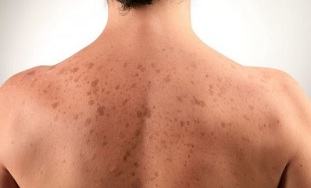With modern development of medicine and much research, scientists cannot fully determine the true causes of the development of squamous lichens. Psoriasis is a disorder of the skin and tissues that surround the joints. The disease is characterized by a non-infectious course, with the appearance of papules and red spots prone to fusion. These formations are dry, scaly, rise above the surface of the skin and represent a chronic and localized process. Microscopy reveals a significant number of keratinocytes, cells of the immune system (T lymphocytes and macrophages), with abundant growth of the vascular network.
Psoriasis and its causes, with this development of medicine, are being actively investigated, but no one determines the final cause of the appearance.
Scientists identify several main bases for the development of pathology:
- Genetics: the hereditary theory of the appearance of psoriasis is based on the fact that if the ancestors or close relatives have this pathology, the risk of appearance in the generationslater it is equal to 25% if one of the parents is ill. With the development of the disease in both parents, the risk of it occurring in the offspring increases to 70%. A healthy child may be born to sick parents, but after a while, under the influence of the above factors, the disease develops in him.
- Immune defect: In examining histological material from psoriasis patients, scientists have revealed an excessive accumulation of diseased immune cells in the layers of the epidermis. At the same time, specific antibodies were found and in the superficial layers of the epidermis - Munro's microabscesses (accumulation of intercellular fluid, leukocytes, macrophages). A general blood test shows an increase in the number of leukocytes (T-helpers), all this speaks of the autoimmune nature of the disease.
- Viral lesion- in this case, it means retrovirus infection. This strain introduces its own strand of tRNA into the host cell, replacing its genetic code with a viral one. That is manifested in an excessive production and multiplication of immature and undifferentiated dermal cells.
An interesting fact is that the antipsoriatic treatment according to the autoimmune theory aims to reduce the number of immune cells, including T-helpers. In the presence of psoriasis in people infected with HIV / AIDS, the number of these cells decreases to limit values and the risk of developing psoriasis increases. Further investigation of this fact may completely disprove the autoimmune theory of psoriasis development.
Factors in the development of psoriasis

What causes psoriasis? There are several provoking factors that negatively affect the body:
- Stress: this factor is the trigger for psoriatic eruptions and the final link, under whose influence the eruption decreases. This factor is one of the main ones, since the appearance of psoriasis in 50% of the cases is produced precisely by overwork, psychological trauma and nervous tension. With the onset of psoriasis remission, any mental shock can cause a relapse;
- Infections- a group of diseases, with the development of which primary foci of psoriatic rash appeared. Such diseases include: all infectious diseases of the upper respiratory tract, bacterial and fungal infections affecting the skin, mononucleosis. In patients with psoriasis, the presence of a greater amount of pathogenic microflora (beta-hemolytic streptococcus and Staphylococcus aureus) was determined. Candidiasis is a fungal infectious process in which psoriasis most often develops;
- External influence: a large number of patients associate the appearance of psoriasis as a result of external physical factors. Most of the time they are: mechanical trauma to the skin, burns, hypothermia and frostbite;
- Endocrinopathies: This group of diseases is accompanied by a poor functioning of the body as a whole. This factor is found more frequently in the female sex, due to frequent changes in hormone levels related to growth, pregnancy, the menstrual cycle and menopause. In patients with diabetes mellitus, the metabolism is significantly disturbed, while a constant excess of glucose adversely affects human tissues and organs, which provokes the development of other diseases;
- Toxins: they act as another cause of psoriasis in the body. Its appearance is associated with food poisoning, work in factories or factories, the abuse of certain products (citrus, coffee, chocolate). Alcohol and smoking, with their toxic effects, cause many diseases, including psoriasis;
- The pathogenic effect includestaking medications.It was shown that a small number of patients began to develop psoriasis while taking the following medications: NSAIDs, beta-blockers, fortified medications (vitamins C, B, D), cytostatics, antibiotics (cephalosporins).
Psoriasis Prevention
Many factors contribute to the development of psoriasis. The basic theory has yet to be determined and prevention measures must be comprehensive and comprehensively oriented. Patients must reconsider their lifestyle. If necessary, change your place of residence to a more environmentally friendly area.
It is recommended to avoid stressful situations. It is possible to take antidepressants and sedatives. The diet should include more fiber, non-allergenic fruits and vegetables, meat, fish. When treating concomitant pathologies, it is imperative to give up bad habits, consult a doctor about replacement therapy. Take treatment courses in specialized sanatoriums.























